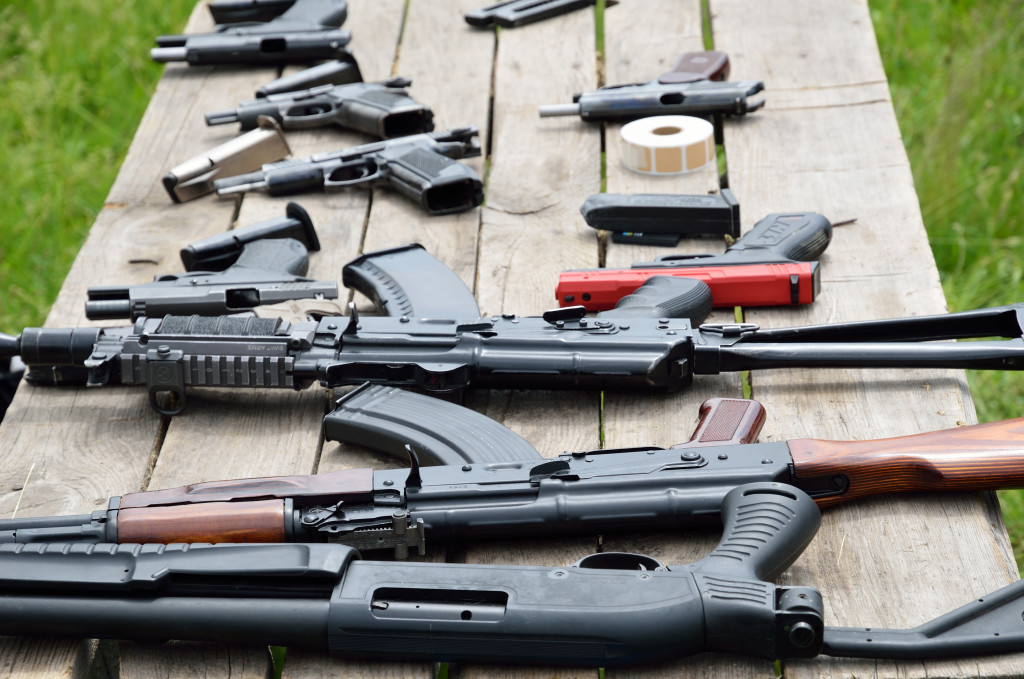- Obtaining a Federal Firearms License from the Bureau of Alcohol, Tobacco, Firearms, and Explosives is essential for legally selling firearms and ammunition.
- Gun store owners must ensure their inventory is adequately secured with security systems such as alarms, video surveillance, and locks.
- Safety training is also critical for gun store owners and customers to understand their responsibility when buying firearms, the proper use of guns, and applicable laws.
- Joining relevant industry organizations provides access to resources such as legal advice and training courses.
- Lastly, business insurance policies can help protect gun store owners in case of legal issues or accidents.
Starting a gun store can be a very profitable venture. According to the National Shooting Sports Foundation (NSSF), the firearms and ammunition industry generates more than $49 billion in economic activity annually, including $22 billion from retail sales of firearms, ammunition, and accessories. Additionally, NSSF statistics show that more than 32,400 jobs were created when the firearms and ammunition industry expanded.
In addition to direct economic benefits for those involved in the gun store business, there are also indirect benefits for the local economy. For example, increasing gun stores often leads to a rise in related industries such as training classes or hunting equipment. Gun stores also help create new jobs with increased demand for security guards and video surveillance experts to protect customers and merchandise.
Regarding profitability, owning a gun store can be highly lucrative, depending on your location. However, every business venture has its own set of rules and regulations that must be followed. Here are a few to consider.
Firearm Selling Regulations

The Federal Firearms License (FFL) is an essential tool for any gun store owner to sell firearms legally. The Bureau of Alcohol, Tobacco, Firearms, and Explosives (ATF) issues this license to ensure proper facilitation of the legal sale of weapons and ammunition. In addition, FFLs are also necessary for those wishing to manufacture or import firearms and conduct other related activities involving these weapons.
To obtain a Federal Firearms License, individuals must fill out an application form supplied by the ATF. This form requires applicants to provide information regarding their identity and any relevant criminal or business experience they may have. The application also requires applicants to prove that they meet specific criteria regarding premises where the FFL will be held. Once the form has been submitted, the ATF will review it and determine whether or not an individual meets all the requirements for a license.
Inventory Security
Aside from meeting FFL requirements, gun store owners must also take measures to ensure their inventory is adequately secured. This means that not only should guns and ammunition be stored securely, but all paperwork related to selling these weapons should also be kept safe. All records must be updated regularly, as this helps reduce the risk of theft or fraud. Furthermore, security systems such as alarms, video surveillance, and locks should all be installed to protect your inventory further.
Finally, gun store owners should always remain up-to-date on the latest laws and regulations regarding firearms. To stay informed about new developments in the industry and changes in legislation, gun store owners to join industry organizations such as the NSSF. Doing so provides access to various resources, including legal advice, industry publications, and training courses.
Safety Training

Another critical issue to consider when opening a gun store is safety training. With such a fatal product, gun store owners, employees, and customers must be adequately trained to use firearms. Here are a few critical safety programs to consider when setting up a gun store:
Firearm safety courses for new customers
Customers must be aware of their responsibility when buying firearms and understand the risks associated with using them. As such, it’s important to offer courses that teach customers how to use guns safely and any applicable laws.
NRA-certified instructors
For gun store owners, hiring NRA-certified instructors is another critical step toward running a successful business. These instructors can provide classes on basic safety and more advanced shooting techniques.
Range Safety Officer training
Range Safety Officers ensure that all shooting activities are conducted safely. As such, it’s essential to provide training so staff can properly monitor customers and advise them on the proper use of firearms.
Concealed carry classes
In states that allow it, offering concealed carry classes is another great way to increase business. These classes provide customers with the knowledge and skills to properly use firearms in self-defense situations.
Insurance
Finally, gun store owners should always consider obtaining business insurance. While this might seem unnecessary, it’s a relatively low-cost way to protect yourself in case of legal issues or accidents. Insurance can provide peace of mind and help cover unexpected costs while owning a gun store.
There are many insurance vendors to consider. Gun store property insurance policies will often cover losses related to theft, damage to the premises, or liability issues. Furthermore, should an employee be injured while working in a gun store, workers’ compensation insurance may help cover costs associated with medical expenses and lost wages.
Final Thoughts
In conclusion, owning a gun store can be both lucrative and rewarding. However, before jumping into such an endeavor, it is essential to consider all the rules and regulations of running a business of this kind. By ensuring all necessary paperwork is filed correctly and safety measures are taken seriously, gun store owners can ensure that their businesses run smoothly and safely.
